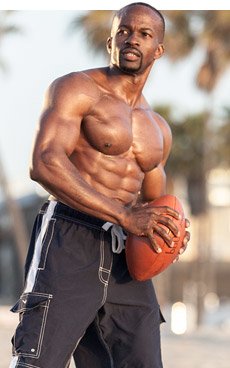This amazingly effective sports performance product is called ZMA (a precise combination of zinc and magnesium). Research suggests it may significantly increase both anabolic hormone levels and muscle strength in trained athletes.*2

Why Is Supplementing With Zinc and Magnesium Important?
Zinc
Zinc is essential to numerous chemical reactions in the body, including protein synthesis and cellular energy. Its immune system values begin with zinc's ability to regulate the production of T cells. Zinc also helps provides critical protection to the liver, supports prostate health, and is essential in maintaining reproductive organ health.*
Zinc's most popular application has been zinc lozenges, which have been suggested to support a healthy immune system.* Lozenges without an acid base (acid bases include orange, lemon, or others with flavorings that have citric acid or vitamin C) are markedly more effective. Take your vitamin C four hours later or earlier than your zinc. The suggested Daily Value for zinc is 15 milligrams, and these mineral combinations usually contain twice that. If you take that amount continually you'll need additional supplemental copper.
Magnesium
Magnesium is essential for normal heart function and transporting neurochemicals essential in muscle function. It's also essential to the critical balance of sodium and potassium within our cells. Despite its vital contributions, the U.S. Department of Agriculture found that 74 percent of people take in less than the recommended Daily Value of 400 mg (for men). The zinc and magnesium formulations usually contain 450 mg.
The Evidence: Effects Of ZMA Supplementation

Many world class athletes are reporting tremendous benefits from ZMA, in the gym as well as on the athletic field. For example, Lester Archambeau, former defensive end for the Atlanta Falcons, said he was extremely satisfied with ZMA. "ZMA definitely helps me recover! I can tell when I take it and when I don't. There is no doubt that it makes me sleep better. I have much better endurance when taking ZMA."*
Bryce Paup, former NFL defensive end and 1995 Defensive Player of the Year has also taken advantage of ZMA. "When I take ZMA, I sleep better and more soundly, and I feel more rested when I wake up," he says.* "The more I rest and the better I sleep, the better I perform on the field."
According to research out of Western Washington University, "A group of competitive NCAA football players who took ZMA nightly during an 8-week spring training program had 2.5 times greater muscle strength gains than a placebo group.* Pre and post leg strength measurements were made."2 The strength of the ZMA group increased by 11.6 percent compared to only a 4.6 percent increase in the placebo group.
Powerlifter and former NFL coach John Gamble has said that "players using ZMA are cramping much less and seem to be getting a more deep and restful sleep which enhances their recovery."
ZMA is also the first nighttime anabolic formula developed specifically to enhance recovery by improving sleep efficiency. ZMA is a very effective sleep aid and is recommended to be taken 30-60 minutes before bedtime. Many athletes fail to realize how important it is to get a deep and restful sleep. Healing, tissue repair, anabolic hormone production, and muscle growth are maximized during sleep, so quality sleep is extremely important to athletes.
ZMA vs. Steroids
ZMA doesn't need to be cycled, because ZMA will not suppress your own endogenous production of testosterone. ZMA may be taken on a continuous basis. Additionally, ZMA is not banned by any athletic organizations.
Conclusion
ZMA will eventually help to establish itself as an excellent supplement for any athlete. As more athletes begin to truly understand the process of maximizing recovery, healing, tissue repair, anabolic hormone production, and muscle growth, they'll begin to see the true power of ZMA.
References
- Lou Gehrigs Disease "ALS In the News" 1999.
- Brilla LR, Conte, V. Effects of zinc-magnesium (ZMA) supplementation on muscle attributes of football players. Med and Sci in Sports and Exercise, Vol. 31, No. 5, May 1999
- Haralambie G, et al. Int J Sports Med, 1981, 2:135138
- Singh A, et al. Am J Clin Nutr, 1989 Apr, 49:695:700
- Max Sport "The Natural Alternative to Prohormones, and Benefits Beyond Strength" 2003.
